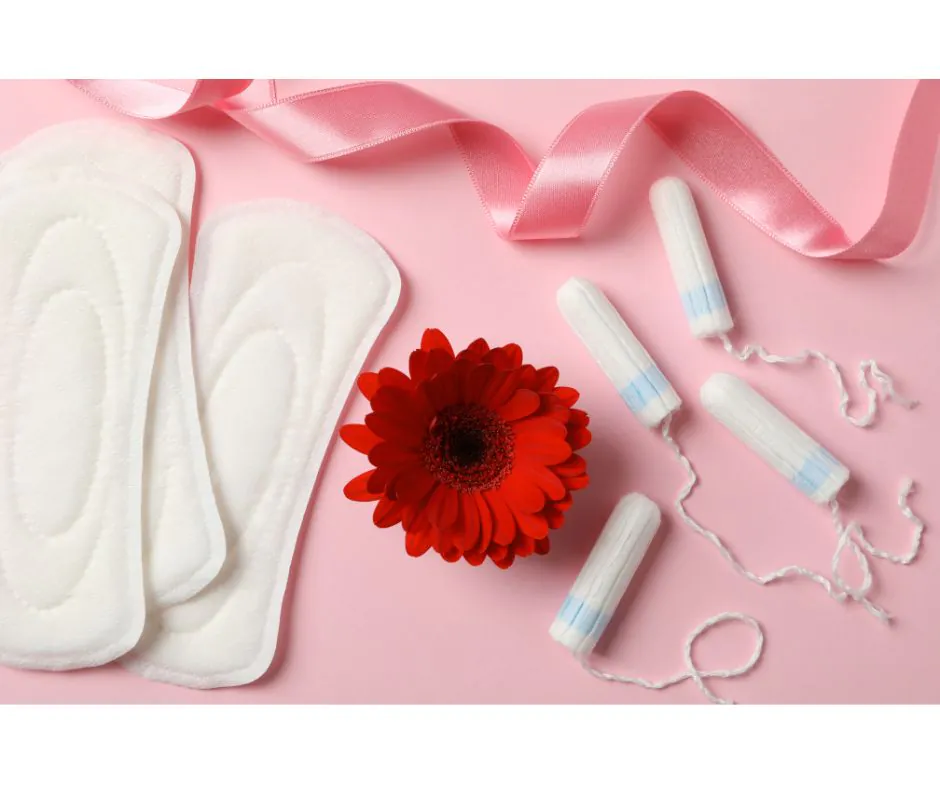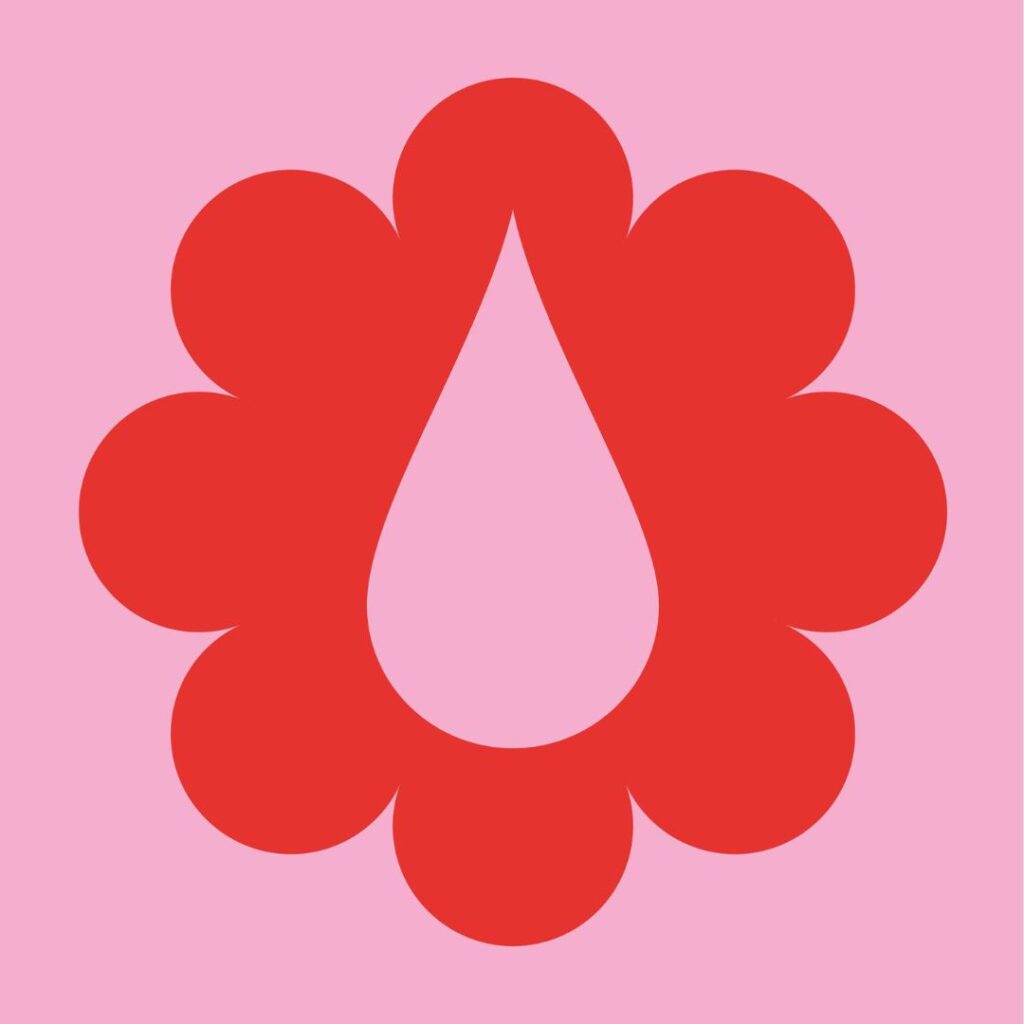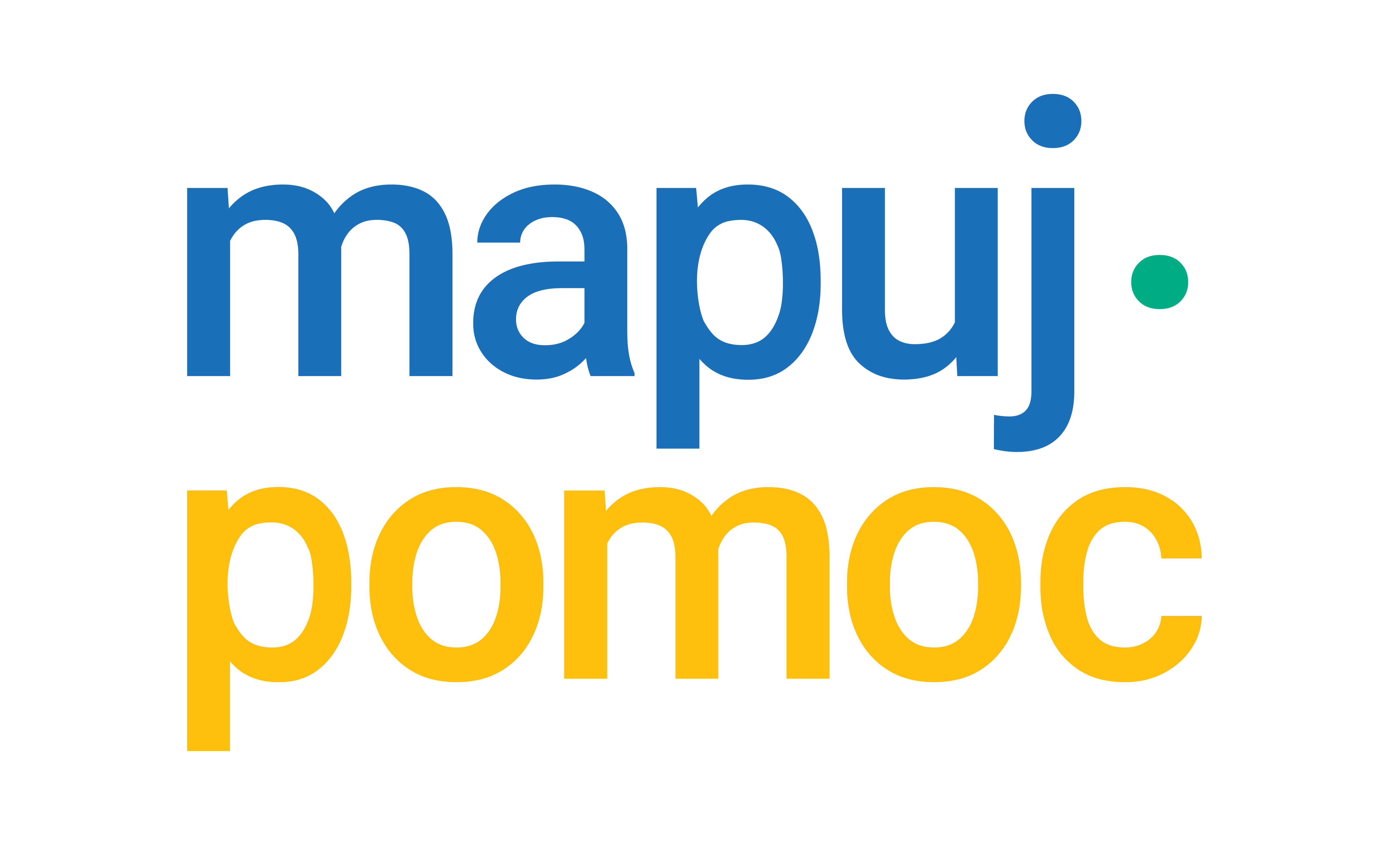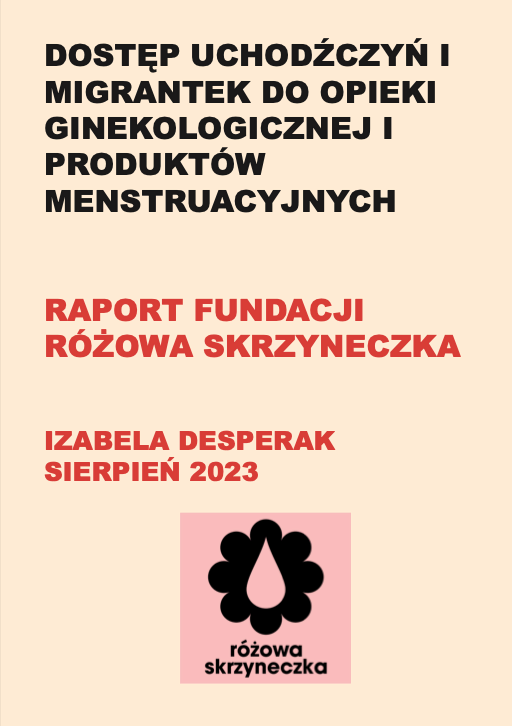
As Fundacja Różowa Skrzyneczka [The Pink Box Foundation], a non-governmental organization dedicated to combating menstrual poverty and exclusion, and actively involved in assisting individuals leaving Ukraine after February 2022, we have decided to investigate the needs of refugees and migrants in terms of access to menstrual hygiene products and gynecological health.
The need to acquire knowledge about the living conditions of female refugees arose from various sources. Primarily, we identified a gap in such research in Poland. Additionally, crucially, in our daily activities, we encountered issues and barriers faced by refugee individuals. Recognizing the immense need to compile these voices in a study, we decided to take action.
Research Among Organizations, Refugees, and Migrants
To conduct the study and provide substantive support for the project, we invited Dr. Iza Desperak, a sociologist with whom we had the opportunity to collaborate during a project focusing on the situation of menstruating individuals in Poland.
Menstruating in the forest without access to water and sanitary pads, navigating through constant travel, or experiencing a first period in a collective accommodation center with only a toilet and sink in the bathroom – the menstruation-related experiences of migrants and refugees are rarely brought into the spotlight (Olha from Kharkiv).
Our research took place in August 2023 on two levels: among experts/practitioners in the field (individuals working in spaces dedicated to supporting refugees) and the personal experiences of refugees and migrants. The study was based on two questionnaires. The first, online, was directed towards non-governmental organizations dealing with refugees and migrants, serving as experts/practitioners in the field to assess their insights into the needs of this demographic. The second questionnaire-based study was conducted in two versions – online and direct (printed), both targeting refugees and migrants, with questions about their own experiences.
We based our final results on a quantitative and qualitative analysis of 21 expert questionnaires filled out by non-governmental organizations and 297 questionnaires completed by migrant women. While the majority of respondents represented Ukrainian refugees, we also received responses from women from other countries (such as Belarus and Afghanistan). The age of the respondents varied widely, ranging from 15 to 79 years old.
Research Findings
The results have revealed that the situation of female refugees significantly elevates the risk of menstrual poverty, and women’s access to healthcare is severely limited due to various factors overlooked by the state healthcare system and immigration policy. Below, we will elaborate on some of the key issues arising from the research:
Among the recommendations gathered from experts were those related to access to medical services (in the field of gynecology) and those addressing menstrual poverty among refugees. Examples of such good practices include: assistance for individuals who, due to their informal residency status, cannot yet apply for health insurance, identifying proficient gynecologists who speak foreign languages, and providing a hygiene kit upon registration for every woman arriving at a foreigner center.
At the material aid point, many women come seeking help; unfortunately, they cannot take as many menstrual hygiene products as they would like, as we have an insufficient quantity, and we have to impose restrictions (employee of one of the organizations).
When it comes to the questionnaires filled out by refugees and migrants, we asked them about demographic data, their economic situation, etc. The most crucial responses for us were those regarding access to hygiene products and gynecological care and health.
In response to the question: ‘Do you and other women in your family always have access to adequate hygiene products during menstruation?’ 226 women (76.1%) answered positively, while only 49 women (16.5%) answered negatively.
Almost half of the respondents (46.5%) utilized some form of support from aid organizations or social assistance, and 94 women (68.1%) from this group received menstrual hygiene products as part of the assistance. The majority of respondents (63.6%), even those who did not utilize such support, believe that this kind of assistance is necessary.
We also asked whether the respondents utilize gynecological care. 91 of them (30.6%) responded that they do not use such care. Among those who answered affirmatively, the most common response was that they visit a gynecologist once a year (62.4%). There were various reasons provided by women who do not access gynecological care, ranging from language barriers to long waiting times, lack of time, and financial constraints preventing them from visiting a doctor.
I don’t go to doctors; I don’t get check-ups in Poland. In Ukraine, you can schedule a visit from one day to another, so for urgent health matters, I go back to Ukraine, and I postpone preventive examinations for now. I had a Pap smear last time in 2021, before the war (Svitlana).
In summary, the research has shown that even among women who arrived in Poland some time ago, and it might seem that their situation is more stable, the issue of adequate gynecological care and concern for their health arises. The same goes for access to menstrual hygiene products. Women still turn to aid centers for pads or tampons. All respondents, even those who indicated that they have enough money for pads, agreed that such basic supplies should be available in places providing assistance to refugees.
When I quickly packed documents and essential items, fleeing from home in Ukraine, it didn’t cross my mind to take pads. I regretted it a lot later (Viktoriia).
Based on the research results and discussions with experts who have reviewed our report, we have also compiled a list of significant recommendations from our perspective. We present them below.
Recommendations for the Ministry of Health
- Promoting medical services, including preventive examinations available under the National Health Fund (NFZ), in languages other than Polish, prioritizing Ukrainian and English.
- Ensuring the guarantee of receiving advice under the NFZ in a language other than Polish, language support already at the registration stage, during the visit, translation of prescriptions, and post-visit recommendations.
- The possibility of utilizing assistance from a translating person during treatment.
- Access to menstrual hygiene products in healthcare facilities, especially in Emergency Departments, psychiatric hospitals, and addiction treatment units.
Recommendations for the Office for Foreigners
- Information about available medical services for individuals with unsettled status in accordance with agreement No. 570/UDSC/15 of June 30, 2015, with PETRA MEDICA Sp. z o.o., in their languages (e.g., French or Arabic).
- Access to healthcare, including gynecological care, for individuals in the procedure in their languages.
- Access to assistance for individuals who, due to their informal residency status, cannot apply for health insurance.
- The possibility of translating medical documents and doctor’s visits into the languages of migrants.

AUTHORS
Fundacja Różowa Skrzyneczka [Pink Box Foundation] – a support space for all menstruating individuals. An organization whose members advocate every day for unconditional access to free hygiene products during menstruation, challenge menstrual exclusion and taboos, educate, and strive for equal access to menstrual knowledge. We demand systemic changes in this area.

